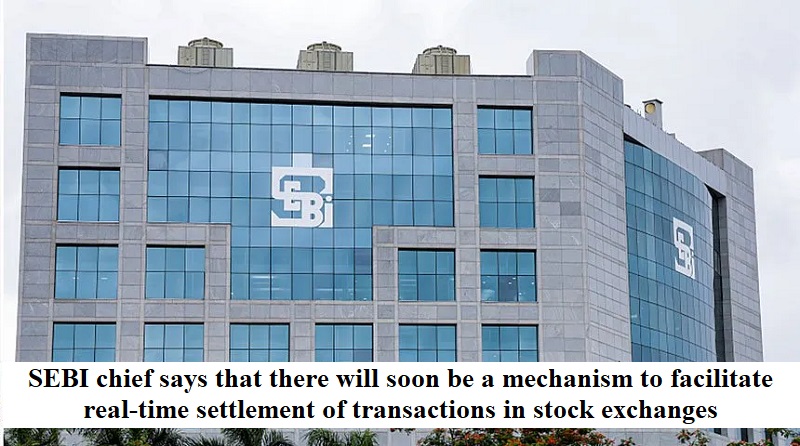
India’s securities regulator, SEBI, has announced that it is working on implementing a mechanism for real-time settlement of transactions on the country’s stock exchanges. This move aims to eliminate the time lag between trade and settlement, where funds and securities are transferred on the same date. The SEBI chairperson, Madhabi Puri Buch, made this announcement a few months after the regulator had already reduced the settlement cycle from T+2 (trade-plus-two days) to T+1 (trade-plus-one day).
Under the current settlement process, there is a one-day delay between the trade date and the settlement date, meaning the actual settlement occurs a day after the transaction. Settlement is considered complete when the seller receives the money, and the purchased securities are delivered to the buyer.
The T+1 settlement cycle was introduced in January of the current year, shortening the settlement time to 24 hours after the transaction, compared to the previous 48-hour cycle. This change was aimed at enhancing operational efficiency, speeding up fund remittances, ensuring prompt share delivery, and simplifying overall transactions for participants in the stock market. India became the second country, after China, to adopt the T+1 settlement cycle for its top-listed securities.
The SEBI’s current efforts involve developing a method to enable same-day trade settlements (T+0) in the securities market. This would be made possible through the use of the Unified Payments Interface (UPI), online depositaries, and advanced technology.
SEBI’s chairperson, Buch, expressed that instantaneous settlement on stock exchanges is something they are actively working on and believes it will become a reality in the future. The regulator is engaging with the relevant ecosystem to make this a viable option.
Currently, under the T+1 settlement cycle, when an investor sells shares, the money is credited to their account on the next day. In contrast, under the T+0 settlement cycle, investors would receive immediate payment, and buyers would receive the shares in their demat account on the same day.
Buch mentioned that a full migration to the T+0 settlement cycle would take time, but it is a goal they are working towards. She also added that the success of the Application Supported by Blocked Amount (ASBA) framework, which aims to bring transparency and safeguard investor’s money held by stockbrokers, would pave the way for further progress towards instantaneous settlement.

Post Your Comments